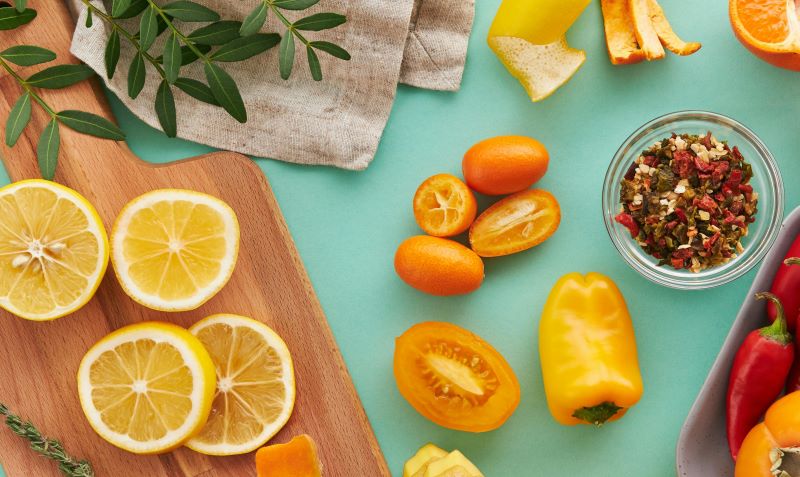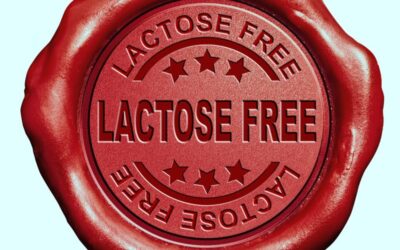Irritable bowel syndrome (IBS) is a common gut disorder affecting millions worldwide. Symptoms like bloating, cramps, diarrhoea and constipation can significantly impact daily life. Many people with IBS turn to dietary changes for relief and a plant-based diet is often a choice. But, can a plant-based diet help IBS? Even if it does help, is there a compromise when we miss out on other essential nutrients? Read on before you decide to switch to a meat-free diet and find out the facts. See my other blogs related to IBS and vegetarianism.
Potential benefits of a plant-based diet for IBS
A plant-based diet, rich in fruits, vegetables, whole grains, legumes, nuts and seeds, offers some potential benefits for IBS sufferers:
- Increased fibre intake: Plant-based foods are naturally high in fibre, which plays a crucial role in gut health. Fibre helps regulate bowel movements, adding bulk to stools and promoting smooth passage through the digestive system. This can be especially helpful for those experiencing constipation with IBS (IBS-C)
- The gut microbiome: A healthy gut microbiome, teeming with diverse beneficial bacteria, is essential for proper digestion and overall well-being. Plant-based diets tend to be higher in pre- and probiotics, which feed these good bacteria, potentially leading to improved gut health and reduced IBS symptoms
- Reduced inflammation: Research suggests that plant-based diets may have anti-inflammatory properties. Chronic inflammation is thought to play a role in IBS, so reducing inflammation through diet could be beneficial
Challenges of a plant-based diet for IBS
A plant-based diet may not be beneficial for everyone with IBS. Many plant-based foods are high in FODMAPs (Fermentable Oligosaccharides, Disaccharides, Monosaccharides and Polyols). These are short-chain carbohydrates that are poorly absorbed by the small intestine and can trigger IBS symptoms in some individuals. Examples include beans, pulses, certain fruits (apples and pears) and some vegetables (onions and garlic in particular).
Whilst fibre is an essential part of the diet, increasing intake too quickly can lead to bloating and discomfort. Increasing or decreasing the amount of fibre in the diet depends on the type of IBS, so seeking professional guidance is really important. If you’re advised to increase fibre in your diet, then introduce it gradually and prioritize low FODMAP options like leafy greens, berries and gluten free grains. Also, ensure that you increase fluids alongside this. Otherwise you could end up being more constipated.
Combining a plant-based diet with low FODMAP
The good news is that you can still reap the benefits of a plant-based diet while managing IBS by incorporating a low FODMAP approach. This involves eliminating high FODMAP foods for a period and then slowly reintroducing them to identify triggers. This can be tricky to do alone and the best results are seen when supported by an IBS Dietitian trained in FODMAPs.
Tips for a plant-based IBS-friendly diet
- Focus on low FODMAP plant-based options: Choose low FODMAP fruits (berries and citrus fruits), vegetables (greens, carrots and tomatoes) and starches (gluten free grains like oats, quinoa and rice)
- Introduce high fibre options gradually: Start with small portions of high fibre foods like oats, wholegrain rice, greens, salads and some fruits to allow your gut to adjust
- Stay hydrated: Ensure that you increase your water intake. It’s crucial for gut health and helps move fibre through the digestive system
- Consider the missing nutrients: Many vegetarians and vegans miss out on the essential nutrients that meat, fish and dairy would provide. Ensure that you get sufficient iron, calcium, vitamin B12 and other vitamins and minerals. Starting a multivitamin may be a wise choice
- For best results: Following a low FODMAP diet can be tricky. Adding in another layer of complexity, by following a meat-free diet can make it even harder. More than 75% of IBS sufferers find their symptoms improve with a low FODMAP diet. Odds are improved when people are supported by an IBS Dietitian trained in FODMAPs
Finding your balance
While the relationship between vegetarianism and IBS is complex, there are ways to approach it strategically, to ensure that you still have a healthy diet:
- Consult an IBS Dietitian trained in FODMAPs: A personalized plan tailored to your specific needs and IBS triggers is crucial
- Embrace the low-FODMAP diet: This approach focuses on eliminating high FODMAP foods whilst incorporating low FODMAP options into your plant-based diet
- Prioritize variety: Explore a diverse range of low FODMAP plant-based foods to ensure that you still have an adequate nutrient intake and tasty meals
- Mindful eating: Listen to your body. Observe its response to different foods and adjust your diet accordingly
- Stress management: Stress can exacerbate IBS symptoms, so incorporate stress-reduction techniques like yoga or meditation into your daily routine
Change your life in just three sessions
Need help to manage your IBS symptoms? I’m based in Cardiff, but work with IBS sufferers across the UK through online sessions. The vast majority of my clients have found that only three sessions are needed before they feel confident to move forward on their own. I will send you booklets, which have an extensive list of all the foods you can eat on the low FODMAP diet. I’m available for advice and support between sessions. Find out more about my IBS symptoms relief package. I offer a free initial telephone call for you to decide whether the low FODMAP diet is right for you. So give me a call or fill out the contact form.
Many of my clients say that working with a specialist IBS dietitian has been life-changing, and are finally managing to live more comfortable lives.
Read about previous client experiences and to help you decide it this is the right approach for you, see my webpage about IBS treatment.
Conclusion
So, can a plant-based diet help with IBS? Following a plant-based diet can be a healthy dietary choice, but its impact on IBS depends on individual factors. Embracing a personalized approach that considers FODMAPs and nutrient needs is crucial for managing vegetarianism and IBS symptoms. Remember, the key lies in finding a balance that nourishes your body and eases your symptoms, allowing you to thrive with both IBS and a vegetarian or vegan lifestyle.
Disclaimer: This blog is for information purposes only and does not substitute for professional medical advice. Please consult your healthcare provider for personalised diagnosis and treatment of IBS.




